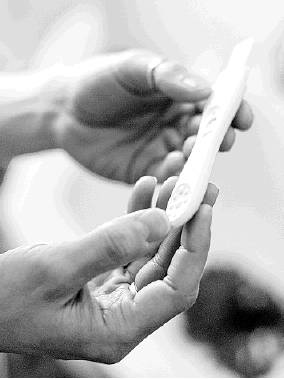The Jewish position on abortion debate
By Scott Hausman-Weiss
What happens when religious belief intersects the law? When what we believe may fundamentally come up against what others do not believe? Is this an invitation for the legislation of areligious view that does not align with other’s views? Perhaps in a theocracy, but not in a democratic and free society.
As a rabbi and as one who has spent the majority of his adult life studying and teaching the Torah from the depth and breadth of Jewish tradition, I find not only deep and meaningful connections to my own Judaism but also tremendous wisdom and enlightenment about what it means to me to be a human being.
And most of the time, the theme of the best wisdom that Judaism elucidates is that the meaning of our lives is rarely found anywhere but in the gray areas of life. Especially when it comes to abstract notions of the soul, salvation, infinity, God, we are best served when we allow the pearls of our wisdom traditions to wash over us, helping us to be that much more present and kind and, indeed, humble.
The crisis of our time today, it seems, is a crucial lack of humility — a willingness to accept our limits as human beings — in terms of what we can say with surety about our own lives and especially about the lives of others.
As a rabbi in Houston, but having spent 12 years at a synagogue in Alabama, the recent legislative acts across the country regarding abortion have me in deep thought. At the end of the day, for me, what is so troubling about abortion politics in our time is when legislation becomes an act of faith.
For many branches of Christianity, the soul is believed to enter the body at the moment of conception, and so to end this life would be an act of murder. For Jews, however, the soul doesn’t enter into the body until birth, thus giving the entity in a mother’s womb a very different legal status than a full human being.
It is not a nefesh (the Jewish legal term identifying the legal status of a live person). This is not at all to suggest that Jewish law is lackadaisical when it comes to protecting this potential for life. But we are talking about the criminalization of an act to affect all people of a state (or country), whose origins and enthusiasm are based upon faith statements that all do not share.
In the Jewish tradition, the question is not, “When does life begin?” The question is, “When does life begin to be human?” This very important distinction drives our Jewish perspective on this issue.
Perhaps the most salient construct when it comes to Judaism and abortion is the following: when a pregnant woman chooses to convert to Judaism, studies, commits herself to the community, sits before a Beit Din (council of three rabbis ) and immerses in amikva (ritual bath), the child she is carrying at the time and then gives birth to, is as Jewish as she is.
The fetus is like a part of her body — a very special part of her body — but a part of her, nevertheless. And Jewish law is clear that when/if a woman’s health is threatened by a fetus, and we pray that these cases are rare indeed, it is the woman’s life that takes precedence. Jewish law adjures us to understand that until a fetus’s head has emerged from the womb, the woman’s life takes precedence.
This too is an act of faith drawn from the grays of life. Do we know this for sure? Yes, as much as others know it not to be the case, because this is not knowledge, it’s faith and belief — things with which our country does not allow us to control others, and all the more so, to penalize them.
Where does this leave us? With the necessity to allow our secular laws to be free of religious influence, for we must recognize, this is what drives the abortion debate. Belief about the soul, salvation, existence: Abstract, prayerful, spiritual notions about the meaning of our lives should not drive the effort, especially when they could logically lead to the criminalization of an act counter to that faith.
All of us in our society, whether we like it or not, do not exist in a vacuum. To separate us by means of faith-based comprehensions of the statuses of each other is a dangerous precedent, and one that will always serve to divide rather than unite.
Hausman-Weiss is rabbi of Houston’s Congregation Shma Koleinu .
